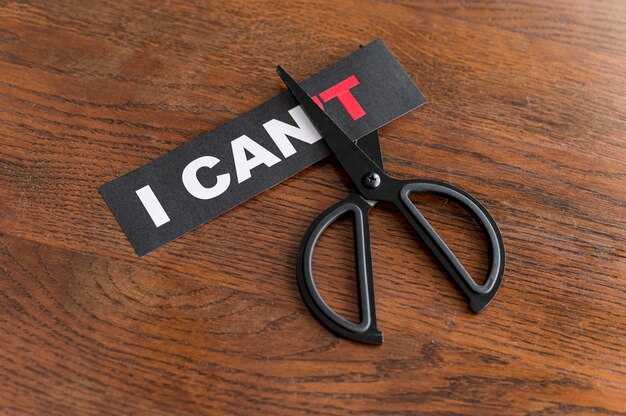Okay, picture this: many of us either already have children or hope to have them someday. Now ask yourself—would it sit right with you if, fifteen years from now, your son or daughter were treated the same way your partner treats you today? Swap your partner for another person’s child and imagine them being constantly dismissed, ignored, belittled, or disrespected. Would that feel acceptable? For most of us, the thought of our child being chronically invalidated or neglected would stir up fierce anger or at least deep sorrow. You wouldn’t stand for it because you love them and you want better for them. Consider everything your child deserves in the relationships they’ll build: they won’t be flawless, of course, but they are entitled to kindness, respect, and to be valued. They deserve to have their voice heard and their perspective taken seriously. Their love should be met in return. And here’s the thing—you deserve the same. We readily acknowledge that our children merit this care, yet all too often we fail to extend it to ourselves. We’ll move heaven and earth to shield them from a harmful relationship, while somehow believing we’re not worthy of that same protection. Childhood experiences of criticism, narcissism, or emotional neglect make it difficult to flip the self-worth switch; it’s no wonder we struggle to see ourselves as deserving when we were repeatedly taught we don’t merit sacrifice or selfless care. This is not about blaming anyone—this is about recognizing how painful and complicated these patterns are—but ultimately, no one is coming to rescue you. You are the one who must stand up for yourself. The inner child inside you—the little boy or girl who was hurt—needs you to feel fierce on their behalf. It’s your responsibility to protect them, to confront your wounds, fears, and those self-sabotaging habits we all carry. If you want to set your children up for success, then model what it looks like to believe you’re worthy: show them through your actions and attitudes that “I am valuable and I deserve kindness and respect.” When was the last time you said that aloud? Demonstrate it by holding clear standards about what you will and will not tolerate, by establishing firm boundaries, by practicing constructive self-talk, and by balancing generosity with safeguarding your time and energy from people who are unhealed or who harm you. Recovery from trauma is difficult—there’s no sugarcoating that—but the cost of not doing the work is heavy for both you and your children. Choose with care whom you allow into your heart, because only you can decide what you deserve in a relationship. Start making those choices today.
Signs your partner’s behavior is harming you (or could harm your child)
- Chronic dismissal of your feelings, or frequent put-downs and belittling.
- Gaslighting—making you doubt your memory, perception, or sanity.
- Consistent lack of reciprocity: emotional labor and kindness flow one way.
- Controlling or isolating behaviors (limiting friends, monitoring communications).
- Disrespect for boundaries—ignoring “no,” pressuring you to change, or violating privacy.
- Public humiliation or subtle contempt disguised as “jokes.”
- Refusal to take responsibility, apologize, or work on patterns that hurt you.
Concrete boundaries you can set (and short scripts to use)
- Boundary: I will not stay in conversations where I am shouted at. Script: “When you raise your voice, I will leave the room. We can continue this later when we’re both calmer.”
- Boundary: I need honesty about finances, parenting, or commitments. Script: “I need transparency about X. If that’s not possible, we need to talk about next steps.”
- Boundary: I will not accept insults or put-downs. Script: “That comment was hurtful. I won’t continue this conversation when I’m being insulted.”
- Boundary: I need shared responsibility for childcare and household tasks. Script: “I need you to take on these tasks each week; otherwise we need to re-evaluate how we manage this household.”
How to decide whether to stay, repair, or leave
- Assess safety first: if you or your children are at risk of physical harm, prioritize immediate safety and contact emergency services or local domestic violence resources.
- Look for patterns, not isolated incidents: repeated behaviors that show a lack of empathy, accountability, or willingness to change are more concerning than rare mistakes.
- Gauge willingness to change: is your partner open to feedback, willing to apologize, and ready to do concrete work (therapy, behavior change, accountability)?
- Consider the impact on children: even if conflict is not violent, chronic stress, exposure to contempt, or emotional unavailability affects children’s development.
- Get outside perspective: consult a therapist, trusted friend, or counselor to help clarify what’s tolerable and what’s dangerous.
Practical steps you can take now
- Write down recurring incidents and how they make you feel—this clarifies patterns and validates your experience.
- Set clear, actionable boundaries and state the consequences if they’re crossed; follow through consistently.
- Seek professional help: individual therapy (trauma-informed or attachment-focused) and couples therapy only if both partners commit to change.
- Build a support network: trusted friends, family, support groups, or online communities who can provide perspective and practical help.
- Plan for safety and logistics: secure important documents, keep an emergency bag ready, and know local resources if you need to leave quickly.
- Model healthy interactions for your children: apologize when you’re wrong, ask for help, show kindness to yourself and others.
Self-care and inner-child work

- Daily micro-practices: 3–5 minute grounding exercises, brief journaling about one thing you did well, or naming one need you met that day.
- Affirmations to try aloud: “I deserve kindness,” “My feelings matter,” “I protect and love my inner child.”
- Therapeutic practices: guided journaling (write to your younger self), visualization exercises, EMDR or trauma-focused therapy when appropriate.
- Maintain sleep, nutrition, movement, and time with people who replenish you—these basics improve clarity and resilience.
When to involve outside help
- If you experience any form of physical violence, sexual coercion, stalking, or threats—seek immediate help from emergency services and local domestic violence agencies.
- If patterns continue despite clear boundaries and honest conversations, consider individual therapy and a consultation with a family lawyer about your options for protecting yourself and your children.
- If you’re unsure whether interaction is emotionally abusive, a qualified therapist or domestic violence advocate can help you identify red flags and safety steps.
Resources and further reading

- Look for therapists trained in trauma, attachment, or family systems work. If your partner will participate, seek a couples therapist who recognizes power imbalances.
- Books that many find helpful: The Body Keeps the Score (Bessel van der Kolk), Attached (Amir Levine & Rachel Heller), Boundaries (Henry Cloud & John Townsend).
- If you are in immediate danger or need confidential support, contact local emergency services or your nearest domestic violence hotline. If you are in the United States, the National Domestic Violence Hotline is available at 1‑800‑799‑7233 and online at thehotline.org.
Final reminder
Protecting your children doesn’t begin by tolerating harm to yourself—it begins by showing them through your choices what respect, care, and healthy boundaries look like. You owe it to your present self and to the child you once were to insist on being treated with dignity. Start with small, consistent steps; claim the care you’d demand for any child. You are worth it—and your children will learn worth by watching you act in your own defense.


 Toléreriez-vous ÇA dans votre relation ?">
Toléreriez-vous ÇA dans votre relation ?">

 Relationship EXPERT reveals Secrets to Connection: Dr. Sue Johnson">
Relationship EXPERT reveals Secrets to Connection: Dr. Sue Johnson">
 Êtes-vous entouré de brutes ? La raison cachée pour laquelle vous les laissez entrer.">
Êtes-vous entouré de brutes ? La raison cachée pour laquelle vous les laissez entrer.">
 Le comportement de votre partenaire est lié à un traumatisme, mais ce n'est toujours pas acceptable.">
Le comportement de votre partenaire est lié à un traumatisme, mais ce n'est toujours pas acceptable.">
 The STRONGEST Sign An Avoidant Still Loves You Deeply">
The STRONGEST Sign An Avoidant Still Loves You Deeply">
 If You Shut Down During Conflict, Watch This">
If You Shut Down During Conflict, Watch This">
 If Your Partner Says These Phrases, They’re an Avoidant">
If Your Partner Says These Phrases, They’re an Avoidant">
 Until This One Shift Finally Made the Avoidant Come Back | Mel Robbins Motivational Speech">
Until This One Shift Finally Made the Avoidant Come Back | Mel Robbins Motivational Speech">
 For Healing, Sane Action is More Powerful Than Sad Stories">
For Healing, Sane Action is More Powerful Than Sad Stories">
 A Partner Needs to Know About Your Past — But What If You’re Just Dating?">
A Partner Needs to Know About Your Past — But What If You’re Just Dating?">
 CHEATING is for SELFISH COWARDS (like me)">
CHEATING is for SELFISH COWARDS (like me)">